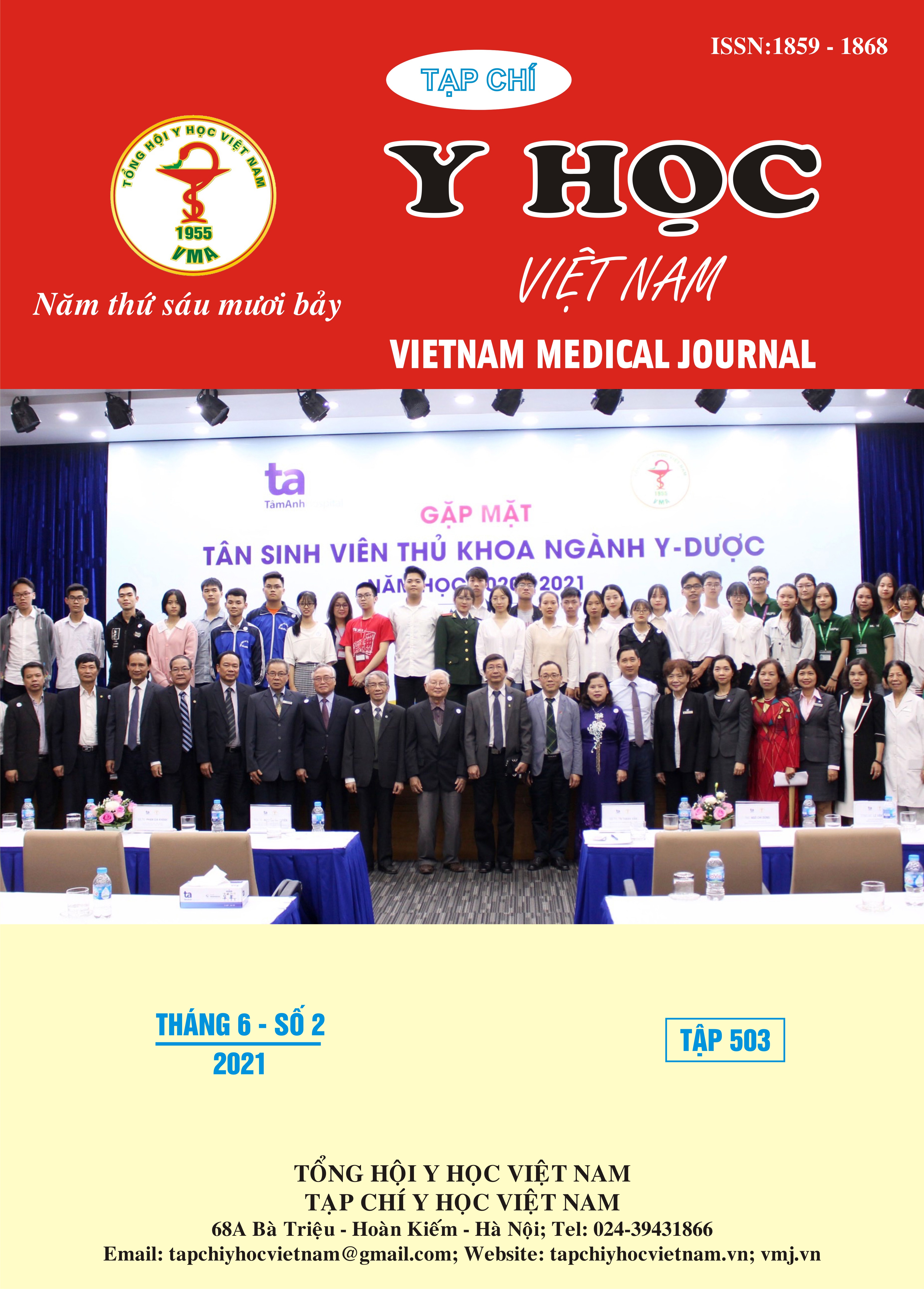DETERMINING THE RATE OF ACUTE INSOMNIA AND SOME RELATED FACTORS IN PATIENTS WITH TRAUMATIC BRAIN INJURY
Main Article Content
Abstract
Objectives: Determine the rate, clinical features of acute insomnia, the relationship of some factors to acute onset insomnia in patients with traumatic brain injury. Subjects and research methods: Study of 225 patients with traumatic brain injury treated at the Department of Neurosurgery at Military Hospital 175 by prospective, cross-sectional description. Results: There were 30.67% of patients satisfying the criteria for acute insomnia according to DSM–5. Patients with acute insomnia had a mean time of sleep-onset latency of 60 minutes, a mean total sleep duration of 4.71±1.08 hours per night. Most patients complain of insomnia most days of the week and insomnia at the beginning of sleep accounts is common. The average number of awakenings during the night was 2.20±1.35 times. The incidence of acute insomnia does not depend on gender, age group, or severity of traumatic brain injury. This rate is higher among patients with headache, brain contusion and/or hemorrhage, and midline displacement on CT scan of the brain.
Article Details
Keywords
insomnia, traumatic brain injury
References
2. Trương Phước Sở, Tô Vĩnh Ninh, Phạm Dũng Nghiệp và cs (2009), "Nghiên cứu tình trạng chấn thương sọ não từ sau khi quy định đội mũ bảo hiểm", Y Học Tp. Hồ Chí Minh. 13(6), tr. 319 - 327.
3. Duclos C., Dumont M., Potvin M. J. và cs (2016), "Evolution of severe sleep-wake cycle disturbances following traumatic brain injury: a case study in both acute and subacute phases post-injury", BMC Neurol. 16(1), tr. 186.
4. Jain A., Mittal R. S., Sharma A. và cs (2014), "Study of insomnia and associated factors in traumatic brain injury", Asian J Psychiatr. 8, tr. 99-103.
5. Nampiaparampil D. E. (2008), "Prevalence of chronic pain after traumatic brain injury: a systematic review", JAMA. 300(6), tr. 711-9.
6. Ouellet M. C., Beaulieu-Bonneau S., Morin C. M. (2006), "Insomnia in patients with traumatic brain injury: frequency, characteristics, and risk factors", J Head Trauma Rehabil. 21(3), tr. 199-212.
7. Parcell D. L., Ponsford J. L., Redman J. R. và cs (2008), "Poor sleep quality and changes in objectively recorded sleep after traumatic brain injury: a preliminary study", Arch Phys Med Rehabil. 89(5), tr. 843-50.
8. Puffer R. C., Yue J. K., Mesley M. và cs (2018), "Long-term outcome in traumatic brain injury patients with midline shift: a secondary analysis of the Phase 3 COBRIT clinical trial", J Neurosurg. 131(2), tr. 596-603.


